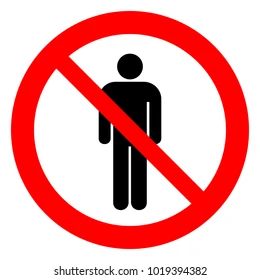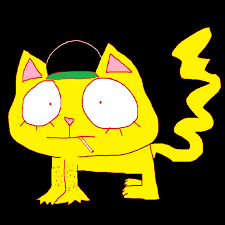Ender's Game: Amazing, Yet Questionable

Hi everyone! For my second blog post, I decided to read a book that I've heard a lot about and have been wanting to read for a while now, Orson Scott Card's Ender's Game. Now I haven't been able to finish this book yet, so before I start the review, keep in mind that there are going to be some things in this book that I don't know yet, and I'm just writing based off of what I've read so far. Despite that, there are a lot of things that I have to say about Ender's Game, almost all positive, but with some things that are quite questionable and really just left me bamboozled.
Ender's Game tells the story of Andrew "Ender" Wiggin, who grows up in a space-faring futuristic society. Humanity is recovering from two conflicts narrowly won against the Buggers, an alien species that once invaded Earth. To ensure that the Buggers do not defeat the humans in case of a third invasion, the International Fleet (I.F.) finds the most intelligent children and recruits them to go to Battle School, located inside a spaceship far away from Earth. There, with the intent to produce military commanders, the students practice fighting in various war games and train in military strategy. Ender is one of those kids sent to Battle School, and he is considered one of the brightest children on Earth.
First of all, all of the characters within this book are insanely well written, but especially Ender. Throughout the novel, we see scenes where Ender commits acts of violence, whether intentional/justified or not, making him reflect constantly on if he's an evil murderer. Of course, he doesn't want to think of himself as an evil person, and there are many scenes in the novel where he indeed does show compassion and empathy. However, as many people in real life do, he only sees the flaws of himself and constantly draws parallels between him and his abusive older brother, Peter. This sort of internal conflict gives Ender's Game an interesting and quite realistic conflict (although normally people don't see themselves as murderers); it's not solely against the far-away Buggers or some school bullies, it's against Ender himself. There's also no clear answer to this conflict; there's no clearly defined good side or bad side, and maybe Ender really even is an evil person, but it gives the reader something to think about as the novel progresses and these themes come back time and time again.
Another thing that I really like about Ender's Game are the dystopian elements found in the story. The most prominent detail is that at the beginning of each chapter, people (sometimes revealed who, sometimes not) discuss their observations with Ender, indicating that they watch Ender and the other students constantly, both in Battle School and before when they were still civilians. Sometimes this monitoring isn't even hidden; prospective Battle School students have trackers implanted into their neck, allowing researchers to see everything happening inside their mind. There are other small details throughout the book, such as TV broadcasts being edited/censored in order to support the messages of the government, and how the government sets a limit of two kids per family, only allowing three children in extremely specific circumstances (Ender is considered a "Third" [child], making him face discrimination and harassment in his civilian life). This paints a bleak picture where authoritarianism in this world is not just present but supported by many, but it's fitting for this book with how the military studies and observes Ender as this child-genius.
Finally, the questionable part of Ender's Game. Card makes a very questionable decision on page 45 by writing multiple racist lines about Black people (including the use of the n-word said by Ender, who's presumably white) and Asians during dialogue between Ender and a friend.
Yeah... that was basically my reaction when I read that line. I understand that there are times when writing in that manner can support an anti-racist theme, but in the context of Ender's Game, I am utterly bamboozled as to the reason for writing it like that. There's nothing preceding or succeeding this section about race, and race is not even mentioned anywhere else in the book (I've read about 2/3 of it). Remember, this is a sci-fi book about 6-7 year olds that centers compassion and acceptance as one of its central themes, which makes it just really strange to me. So that's a warning to anyone who may feel uncomfortable with that type of writing; if that's you and you still want to check this book out, I recommend checking out a newer edition of this book since that part is removed (I got my older edition copy from the Uni library).
Overall, this book is a great read despite that one shortcoming, and I still would recommend you guys to check this book out. Sorry for the yapping everyone, and thanks for reading.
-Jayden



Hey Jayden! I've had this book on my 'to read' list for a while, but WOW. I did not know it included some... interesting elements. I think it still sounds interesting though, and I might actually check out a copy! I love how well-written these paragraphs are, and your paragraph about Ender is amazing!!
ReplyDeleteI've been wanting to read this book for a while now and your explanation of the plot now has me totally captivated! Even with the questionable elements, I think this sounds like a great book. You wrote this review really well and now I have all the more reason to read this book.
ReplyDeleteLeaving out the questionable parts, I feel like this book could be very interesting to me. I'll have to check it out!
ReplyDeleteI had been on the rocks about this book, I heard some stuff about it being a little bit racist. However looking at the plot and seeing on how it only happens once I think that this book would be pretty interesting.
ReplyDelete